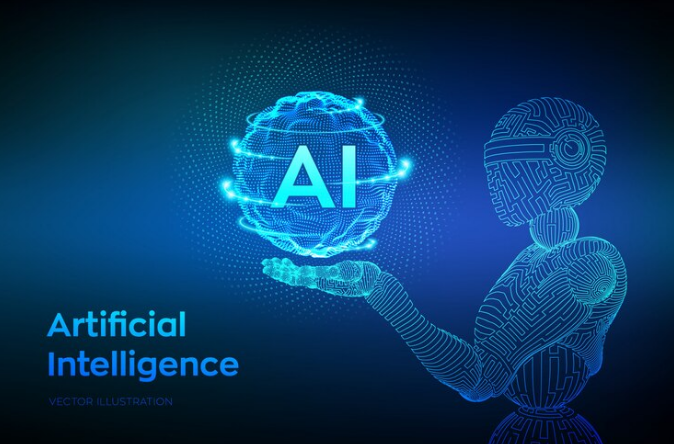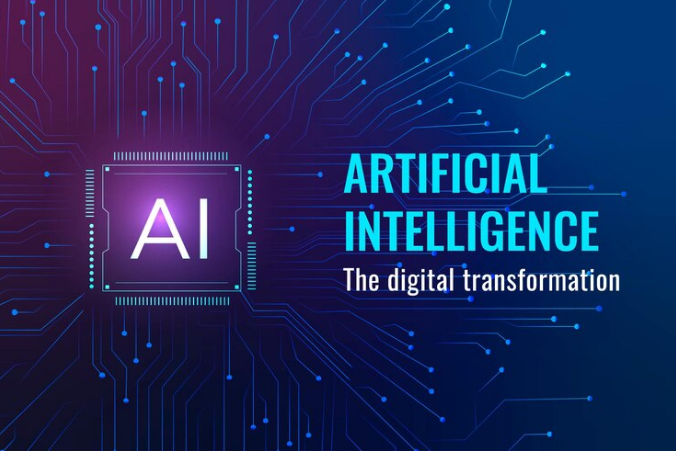Artificial Intelligence (AI) has become a ubiquitous force shaping our daily lives, from virtual assistants on our smartphones to complex algorithms powering financial markets. This article explores the fascinating realm of AI, decoding its power and potential.
Table of Contents
The Rise of Artificial Intelligence
In the contemporary world, the prominence of Artificial Intelligence is undeniable. Its growth trajectory is nothing short of remarkable, transforming industries and redefining the way we live and work.
What is Artificial Intelligence?
At its core, AI is a branch of computer science that aims to create intelligent machines capable of performing tasks that typically require human intelligence. Understanding the basics and the various types of AI is crucial for grasping its impact.
Historical Evolution
To truly comprehend the power of AI, it’s essential to delve into its history. From early conceptualizations to significant breakthroughs, the journey of AI development has been marked by milestones that paved the way for its current capabilities.
Applications in Everyday Life
AI has permeated various aspects of our daily lives. Whether it’s revolutionizing healthcare, optimizing financial processes, or enhancing educational experiences, its applications are diverse and impactful.
How AI Works
Unraveling the complexities of AI involves exploring concepts like Machine Learning, Deep Learning, and Neural Networks. Understanding these mechanisms is key to appreciating the intelligence behind AI systems.
Ethical Considerations
As AI continues to advance, ethical considerations come to the forefront. Issues like bias in AI algorithms and concerns about privacy necessitate careful examination and responsible development practices.
AI and the Job Market
The integration of AI in industries raises questions about its impact on employment. While certain jobs may be at risk, new opportunities are emerging, creating a dynamic shift in the job market.
AI in the Future
Predicting the future of AI involves a blend of speculation and analysis. Examining potential benefits, risks, and the evolving landscape provides insight into what lies ahead.
Case Studies
To truly appreciate the impact of Artificial Intelligence, it’s essential to examine real-world case studies where AI has demonstrated its prowess.
Successful AI Implementations
Healthcare Revolution
In the healthcare sector, AI has been a game-changer. From predictive analytics for disease diagnosis to personalized treatment plans, AI algorithms are significantly improving patient outcomes. For example, IBM’s Watson for Oncology analyzes vast medical literature and clinical trial data to recommend personalized cancer treatment options.
Financial Optimization
Financial institutions leverage AI for risk management, fraud detection, and customer service. Algorithms analyze massive datasets in real time, identifying patterns and anomalies. This not only safeguards financial systems but also enhances the overall customer experience.
Lessons Learned
While celebrating successes, it’s crucial to acknowledge challenges and lessons learned from AI implementations.
The Importance of Data Quality
The success of AI is intricately tied to the quality of data it processes. In instances where data is incomplete or biased, AI outcomes may be skewed. Organizations must prioritize data quality assurance to ensure reliable AI-driven insights.
Human-Machine Collaboration
Effective AI implementation involves a collaborative approach between humans and machines. Human oversight is crucial to interpreting AI-generated insights, making ethical decisions, and ensuring responsible use of technology.
Challenges in AI Development

Despite its transformative potential, AI faces several challenges that require careful consideration and resolution.
Technical Challenges
Processing Power and Storage
AI algorithms demand substantial processing power and storage capacities. As AI applications become more complex, addressing these resource requirements becomes a pressing concern for developers and organizations.
Explainability and Interpretability
Interpreting how AI arrives at specific decisions is a challenge. Enhancing the explainability and interpretability of AI models is essential for building trust and understanding in the user and developer communities.
Regulatory Challenges
Ethical Guidelines and Standards
The rapid evolution of AI has outpaced the development of comprehensive ethical guidelines and standards. Establishing a framework that guides responsible AI development and usage is imperative to ensure alignment with societal values.
Privacy Regulations
AI often relies on vast amounts of personal data. Balancing the potential of AI with privacy regulations is an ongoing challenge. Striking the right balance requires collaboration between tech innovators and policymakers.
The Future of Human-AI Collaboration
The future of AI is not about humans versus machines but rather a collaborative partnership where each complements the strengths of the other.
Augmented Intelligence
Augmented Intelligence, an emerging concept, envisions a symbiotic relationship between humans and AI. Instead of replacing human capabilities, AI enhances human intelligence, aiding in decision-making and problem-solving.
Coexistence and Integration
As AI becomes more integrated into daily life, achieving a harmonious coexistence is paramount. Integrating AI seamlessly into existing systems and workflows ensures a smoother transition and acceptance by society.
AI in Pop Culture
AI’s presence extends beyond the realm of technology. Analyzing its depiction in movies, literature, and public perception provides a holistic understanding of its cultural impact.
The Role of Data in AI
Data is the lifeblood of AI, influencing its effectiveness and ethical implications.
Importance of Quality Data
AI’s ability to generate meaningful insights depends on the quality of the data it processes. Striving for diverse, unbiased, and accurate datasets is essential for responsible AI development.
Data Privacy Concerns
With the increasing reliance on personal data, protecting individual privacy is a paramount concern. Implementing robust data privacy measures and ensuring transparent data practices are integral to ethical AI.
Investing in AI
For investors seeking opportunities in the burgeoning field of AI, understanding the landscape is key.
Opportunities for Investors
AI presents numerous investment opportunities across various sectors. From startups focusing on innovative AI applications to established tech companies integrating AI into their operations, the possibilities are vast.
Risks and Rewards
Investing in AI comes with inherent risks, including technological uncertainties, regulatory changes, and market dynamics. A balanced approach that considers potential rewards alongside risks is essential for informed investment decisions.
Conclusion
In the ever-evolving landscape of technology, the rise of Artificial Intelligence (AI) stands as a testament to humanity’s ability to push the boundaries of innovation. From its nascent stages to its current pervasive influence, AI has not only transformed industries but has become an integral part of our daily lives.
As we navigate the intricacies of AI, it becomes clear that understanding its historical evolution is essential. The journey from early conceptualizations to the milestones achieved in the mid-20th century has paved the way for the sophisticated AI systems we have today.
AI’s applications in everyday life showcase its versatility. In healthcare, finance, and education, AI is not just a tool; it is a catalyst for revolutionizing processes, improving outcomes, and opening new frontiers of possibilities. The fusion of AI with machine learning, deep learning, and neural networks underscores its dynamic and adaptive nature.
However, this transformative power comes with ethical considerations. Bias in AI algorithms and privacy concerns demand vigilant attention from developers and policymakers. The responsible development of AI involves not only harnessing its capabilities but also ensuring that it aligns with ethical standards and societal values.
The impact of AI on the job market is a subject of ongoing debate. While certain roles may be automated, the emergence of new job opportunities in AI-related fields underscores the need for adaptability and continuous learning.
Looking to the future, predictions and speculations abound. The potential benefits of AI are immense, from advancements in natural language processing to innovative solutions for global challenges. Yet, the risks, including technological uncertainties and regulatory complexities, must be carefully navigated.
Human-AI collaboration is not about replacing one with the other but finding a harmonious coexistence. Augmented intelligence envisions a future where AI enhances human capabilities, working together to tackle complex problems and drive progress.
In the realm of pop culture, AI’s portrayal influences public perception. As society grapples with the implications of AI, bridging the gap between fictional depictions and factual information is crucial for fostering trust and understanding.
Data, the lifeblood of AI, plays a pivotal role. The importance of quality data cannot be overstated, and safeguarding individual privacy is paramount. Investing in AI, while promising, requires a balanced approach, considering both potential rewards and inherent risks.
In conclusion, cracking the code of Artificial Intelligence requires a holistic understanding of its past, present, and future. As we stand at the forefront of this transformative era, the responsibility lies in our hands to ensure that AI is developed and utilized in ways that benefit humanity as a whole. Navigating the complexities with ethical considerations, a collaborative mindset, and a commitment to responsible innovation will unlock the true power and potential of Artificial Intelligence.
FAQs
- Is AI a threat to job security?
- While AI may replace certain jobs, it also creates new opportunities. Adaptability and upskilling are crucial for navigating the changing job market.
- How can bias in AI be mitigated?
- Mitigating bias requires a proactive approach to algorithm development, diverse datasets, and continuous monitoring.
- What are the key challenges in AI development?
- Technical challenges, ethical considerations, and regulatory complexities are among the key challenges in AI development.
- How can individuals invest in AI?
- Individuals can explore investment opportunities in AI through stocks, funds, and emerging technologies.
- What role does data play in the success of AI?
- Quality data is the foundation of AI success. Ensuring ethical data practices and privacy is vital for responsible AI development.

